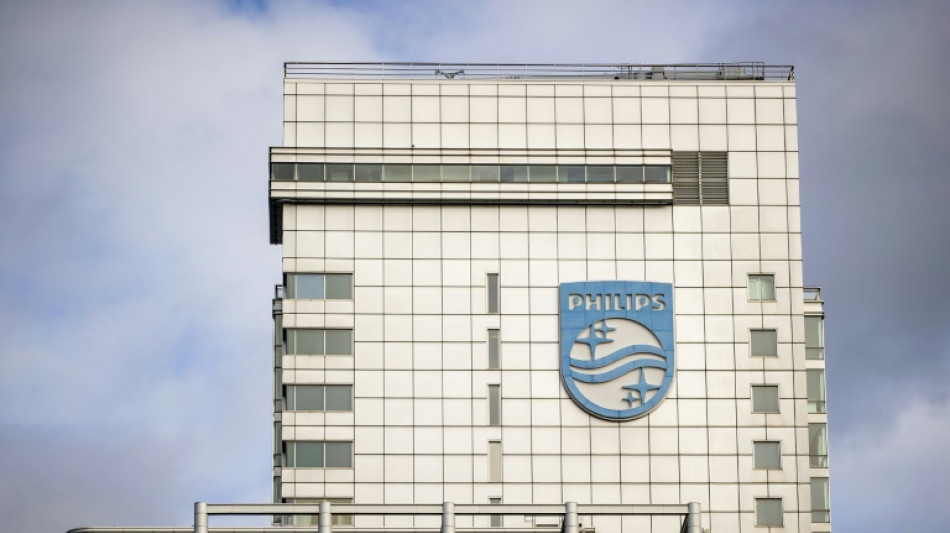
Philips turns in a profit but China, tariffs weigh

Dutch medical device maker Philips reported a net profit for the first time in three quarters Tuesday despite weak sales in China but warned of "intensified" uncertainties due to tariffs.
Net profits came in at 72 million euros ($82 million), compared to a net loss of 998 million euros in the same quarter last year and 333 million euros in the fourth quarter of 2024.
"It's an encouraging start to the year," the firm's chief executive Roy Jakobs told reporters.
Jakobs predicted that the second half of the year would be stronger for the firm than the first half.
"In an uncertain macro environment that has intensified due to the potential impact of tariffs, we are focused on what we can control," he added.
The company estimated a hit of between 250-300 million euros from tariffs over the year.
Philips maintained its forecast for between one and three percent growth in sales for 2025, but slightly cut its projection for earnings before special items (EBITA).
The firm pointed to a two-percent growth in orders globally, with China again proving a drag. Without China, the order growth would have been four percent, Philips said.
However, global sales were down two percent compared to the same quarter last year due to a "double-digit decline" in China, the firm said.
Philips has previous warned that a slowing Chinese economy was hurting consumer demand for products and the government's anti-corruption drive was hitting procurement.
Once famous for making lightbulbs and televisions among other products, Amsterdam-based Philips in recent years has sold off subsidiaries to focus on medical care technology.
Since 2021, the company has been battling a series of crises over its DreamStation machines for sleep apnoea, a disorder in which breathing stops and starts during sleep.
Millions of devices were recalled over concerns that users were at risk of inhaling pieces of noise-cancelling foams and fears it could potentially cause cancer.
In April 2024, it announced it had reached a $1.1 billion deal to settle US lawsuits over the faulty machines.
Z.Ryu--SG

 London
London

 Manchester
Manchester
 Glasgow
Glasgow
 Dublin
Dublin
 Belfast
Belfast
 Washington
Washington
 Denver
Denver
 Atlanta
Atlanta
 Dallas
Dallas
 Houston Texas
Houston Texas
 New Orleans
New Orleans
 El Paso
El Paso
 Phoenix
Phoenix
 Los Angeles
Los Angeles

